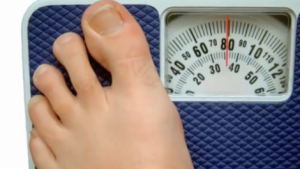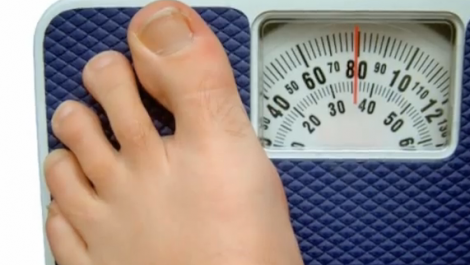Eating disorders can be very horrible and little known to people but extreme dieting can lead to other serious problems and even death. Statistics show that an estimated 5 million people in the United States, primarily girls and women, suffer from the eating disorders of anorexia and bulimia. Studies show that white women are most likely to have an eating disorder, although men and women are by no means immune from this. An estimated 85 percent of eating disorders start during adolescence. Usually, these are the people who have disturbed body image and low self esteem.
Eating Disorder Types
 Anorexia Nervosa is an eating disorder that is characterized by a refusal to maintain a minimally normal body weight, self-starvation to the extreme, and a disturbed perception of body weight and shape. This eating disorder is seen primarily teenage girls and young women. They feel more beautiful when they are very skinny and gains confidence by morbidly trying to look like supermodels. An anorexic woman would refuse to eat and would claim that she has no appetite or is already full even though she seems like she has not eaten yet.
Anorexia Nervosa is an eating disorder that is characterized by a refusal to maintain a minimally normal body weight, self-starvation to the extreme, and a disturbed perception of body weight and shape. This eating disorder is seen primarily teenage girls and young women. They feel more beautiful when they are very skinny and gains confidence by morbidly trying to look like supermodels. An anorexic woman would refuse to eat and would claim that she has no appetite or is already full even though she seems like she has not eaten yet.
Binge Eating Disorder is an eating disorder whose criteria are similar to those of bulimia nervosa, excluding the purging factor.
Bulimia Nervosa is an eating disorder wherein the sufferer has recurring binge eating episodes combined with a morbid fear and guilt of becoming fat. Binge eating then is usually followed by purging or self-induced vomiting, usually a few minutes after eating. A bulimic person usually has a toothbrush on hand or utilizes his finger to stimulate the back potion of the tongue to stimulate the gag reflex. Bulimic sufferers often have a foul breath odor, sore mouth and usually have dental carries.
Bulimia: In Focus
Why do so many people in our society suffer from eating disorders? Excessive pressure to be thin is at least partly to blame. Commercials and mass media have a lot to do in the campaign of achieving a very thin body like those of a Barbie doll. Usually, those who are bulimic have very controlling parents who are emotionally detached to their children. Parents are usually loved to negate with the things that the child loves. This thus result to a stifling negative body image onto the child when especially when she reaches adolescence to womanhood.
A bulimic binge is not similar to just eating by a normal person. During a binge eating episode, the person eats extremely the foods that she loves not minding about gaining weight. All she wants to do is to indulge in savoring the food because she has starved herself after purging. When she finishes everything up, she starts to cry or feel extremely guilty about the food that she ate and has a morbid fear of gaining extra pounds. She then goes to the bathroom and purges everything she ate and feels better.
 Bulimic people are usually secretive and do not want to tell anybody that she is purging after meals and that she is suffering. She also doesn’t want to ask for help, not even to a trusted friend. People with bulimic disorder often feel that they are committing a crime for binge eating then purging afterwards. They know that it is wrong but still, the fear of gaining extra pounds is paramount priority.
Bulimic people are usually secretive and do not want to tell anybody that she is purging after meals and that she is suffering. She also doesn’t want to ask for help, not even to a trusted friend. People with bulimic disorder often feel that they are committing a crime for binge eating then purging afterwards. They know that it is wrong but still, the fear of gaining extra pounds is paramount priority.
Dangers of Bulimia
Purging after the meal causes the loss of water in the body. Along with the water that was vomited, electrolytes that are important in maintaining homeostasis or balance in the body are also purged. Symptoms of dehydration becomes a danger. Severe dehydration can cause in neuroropathies and even seizures. Electrolyte imbalances can cause other imbalances in the body. This could lead to cardiac arrest and death.
Severe anemia also poses great danger to a person because the oxygen carrying compounds of the blood become low and so the oxygen perfusion throughout the body and the tissues is not sufficient. Amenorrhea is caused by severe malnutrition.
Gastric rupture after extreme binge eating is one of the scariest dangers of bulimia. Rupture is caused by too much load in the stomach. When the stomach ruptures, this could lead to neurogenic shock or hypovolemic shock due to blood loss.
Depression and suicide should be watched out for. Keep in mind that bulimic sufferers have very low self esteem and needs support system but fails to call out for help since they are very secretive persons.
Tools used for purging can be extremely harmful. Some bulimic sufferers use syrup of ipecac, detergents and other foreign objects to induce vomiting. These could lead to other dangerous complications.
Esophageal Damages are caused by the strong gastric acids from the stomach. Stomach acids should stay in the stomach but when a person vomits, gastric contents including these acids are regurgitated to the esophagus, which have a thinner mucosal lining.
Hypotension is caused by the severe malnutrition as result of purging after meals. This can lead to heat problems such as arrhythmia, myocardial infarction or heart attacks, and shock.
